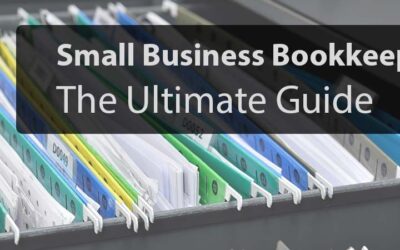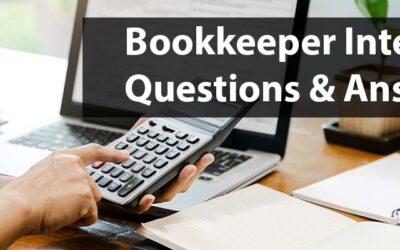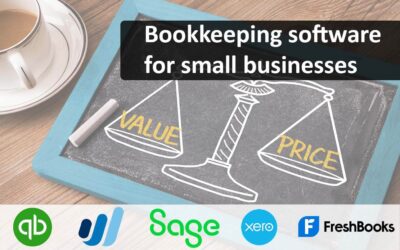Suppose you are the business owner of one of these 1.15 million small businesses. In that case, you likely already understand that one of the most vital things that you should practice as a business owner is bookkeeping. Having good financial records, managing deposits, invoices will help you practice healthy bookkeeping habits. If you don’t stay on top of finance documents related to your business, it can cause you long-term problems with CRA in case of an audit and make your accountant log more hours to fix all bookkeeping issues.
Are you interested in learning how to become a successful business owner? The secret is to stay on top of excellent bookkeeping records. That’s why today, we’re here to show you the best tips to help you improve your bookkeeping as a business owner. Keep reading to learn more!
If you are looking for a more in-depth guide to small business bookkeeping, check out our blog post: “Small Business Bookkeeping: The Definitive Guide for Business Owners“
1. Make Sure to Keep Business and Personal Finances Separate

When you start your business, it may not seem like a bad idea to keep your business finances and personal finances in one account. However, it can quickly create many problems for your small business. During the reporting period, for example, when you are filing an HST return, you have to review all your bank statements to make sure you have invoices for each payment you receive from the client.
In the case of a separate account just for business, it is all easy, but when mixing personal and business transactions in the same bank account, it will result in a nightmare to understand which one is personal or business.
Many Canadian banks currently offer cheap business accounts, where for just $5 per month, you have enough to start, and you can upgrade your account when your business grows.
2. Improved Record Accuracy
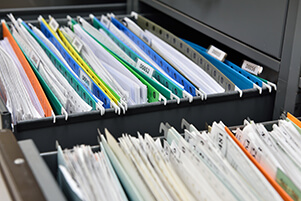
Keeping your account records organized makes a huge difference when you do bookkeeping twelve months later and don’t remember where your recepts are and which one is business or personal expenses.
If you prefer to keep your account’s paper records, make sure you store them in a secure place, such as a lockbox. It would help if you considered organizing all your paper records with proper labelling and using different sorting strategies.
On the other hand, if you prefer to keep electronic records, keep all your accounting information structured. To avoid any data loss, you better use some cloud storage, like OneDrive or DropBox. In that case, even if something happens with your computer, you can still access all your data from another device. It is better to choose only one way of keeping records, either paper or paperless. In that case, you will have a single place to look for information, instead of looking into multiple locations.
Personally, we prefer the paperless option, it is easy to store, easy to search, and it does not take any physical space in your office.
3. Start Creating an Audit Trail

Developing an audit trail will help you retrace the steps you took when looking over your earlier accounting records. An audit trail is a list of documents that helped to support the recorded transactions in your bookkeeping.
This trail will help you track down all of the transactions you have had in the past, making it easier for you to verify that the recorded information is correct. Some of the documents you can include in an audit trail include estimates, invoices, and even purchase orders.
Plus, creating an audit trail will make it easier to prevent fraud in your business, improve your accuracy when it comes to paying taxes, and finding any missing transactions in your list.
Most of our clients use Quickbooks, which has an option to attach documents, so we suggest attaching all receipts directly in Quickbooks.
4. Stay on Top of Invoices
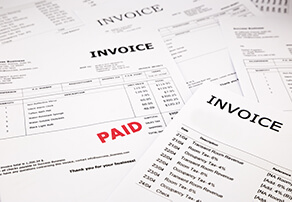
If you do not stay on top of your invoices, it can hurt your cash flow and affect the entire business. Ensure that you track all your late invoices, unpaid invoices, and paid invoices during monthly/weekly bookkeeping activities.
Staying on top of your invoices will allow you to prevent your clients from ordering any new products or materials from you before they pay their previous invoices. One of the great options to make sure your clients pay in time is to add a late payment fee to each invoice.
5. Dedicate Time Each Week For Bookkeeping

To ensure that you stay on top of your financial records, review your financial books each week. It will give you an updated idea about the current state of your business. You will also understand how to better manage your cash flow and realize what expenses you have coming your way.
Reviewing your financial records each week will allow you to evaluate how much income your business has brought each week. Plus, you will also understand how much money your business has spent each week. It will give you the ability to analyze any financial situations that could arise, so you can find ways to soften the impact or avoid the problem altogether.
6. Hire an Accountant

One of the easiest ways to avoid the stress of keeping up with your business’s bookkeeping is to hire an accountant for small business. An accountant will provide you with information about your financial status anytime you want it. A professional accountant makes sure that all the information and data you have is accurate and can generate interim reports for you.
Accounting software can sometimes be exceedingly difficult to operate and complicated, especially if you do not know what you are doing. That is why hiring a trained accountant to stay on track with your business’s bookkeeping needs is essential for your business.
7. Record Each Transaction

Healthy bookkeeping habits will not happen to you overnight, especially if you have never practiced bookkeeping before in your life. One of the easiest ways that you can go about improving your bookkeeping strategy is to start recording every transaction that happens in your business. It will make it a lot easier for you to figure out now what the transaction is about instead of figuring it out at the end of your tax year.
Building upon your record-keeping will help you to develop a strong foundation for your bookkeeping needs. It is also beneficial for you to organize all the transactions you are recording to quickly find any records you need, no matter when you need them. The best way to record transactions is to use QuickBooks online with the feature allowing you to take a photo of receipts, which will keep your bookkeeping paperless and allow you to easily match each expense with the receipt.
8. Practice Budgeting

One of the most basic bookkeeping skills you can have as a small business owner is planning your budget. Preparing a budget that breaks down every dollar, you plan on spending will help you set aside money for things that your business depends on. Besides, you will quickly understand how much you will have to pay in taxes.
Some of the items that you will have to practice budgeting for include expenses such as maintenance, repairs, supplies, and additional inventory. Practicing budgeting when you just started your business will create healthy habits that will help your business grow.
9. Develop an Emergency Funding Plan

As a small business owner, many emergencies can pop up and disrupt your company’s cash flow. One of the easiest ways to limit the impact of a crisis is to develop an emergency funding plan.
You can open a savings account where you keep enough money to sustain your business for a month or two or arrange a loan in advance. Ideally, you better have both options. To have access to a loan and have a saving account.
10. Receipts vs. Invoices

Another common mistake that small business owners make is that they mix up receipts and invoices. Understanding the difference between invoices and receipts will allow you to differentiate between the two in your bookkeeping.
A receipt proving that a transaction occurred. A receipt is what you give the customer after the transaction has been finalized and completed.
An invoice is a bill you send to customers after supplying products or providing services. An invoice should act as a detailed bill the outlines every service or product that your customer has received from your business. Also, an invoice will serve as a reminder that the customer owes your company money for their services.
Plus, invoices are useful to have for your business’s financial records, to help speed up the cash flow process, and to ensure that your customers pay you for what they received.
If you make the mistake of mixing up receipts and invoices, it can make your accounting process difficult. You will not be able to differentiate between what services are in progress, what invoices have been paid, and what invoices still need to be sent out. This will make it complicated for an accountant to balance out your financial records.
11. Start Charting Your Accounts
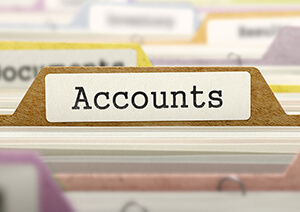
To develop a well-rounded understanding of your business’s financial situation, you need to begin charting your account. Every aspect of your business should have its own space in the records you are keeping up your transactions. It would help if you also were careful to balance your business account according to each unique record.
Some of the most important accounts that your business should be consistently keeping a record of include:
- Your Revenue
- The money you owe other people
- Money customers owe your business
- Payroll expenses
- Purchases
- The money you put into the business, along with the money that anyone else put into the business
- Your profits
Going into detail about all these transactions can help you keep track of your business’s account.
Understanding the Importance of Healthy Bookkeeping Habits as a Small Business Owner
Using the above-listed bookkeeping tips, you will be able to improve your business with financial record-keeping drastically. It will help you spend less time on your business’s financial aspect and more time growing your company and enhancing your customer relationships.
Are you interested in hiring a well-trained and professional accountant to help you manage your business’s bookkeeping? We are here to help you. Click here to contact us today to learn more.
Related articles
Small Business Bookkeeping: The Definitive Guide for Business Owners
In the article, Anna gives business owners an ultimate guide to small business bookkeeping, covering all aspects of bookkeeping for corporations. The blog post covers all you need to know about bookkeeping, whether you are doing it yourself or hiring a professional. Bookkeeping is an integral part of any small business, and it is essential to do everything right to avoid complications during the tax period.
Bookkeeper Interview Questions & Answers
Top 7 Bookkeeping Software for Small Businesses
A reliable bookkeeping system helps you track and monitor your business performance and clearly understand your profitability. But with so many options available in the market right now, a small business owner might need help finding the right tool. We have discussed different accounting & bookkeeping software that you can use. You may select any of them depending on your budget and needs.

Anna Grigoryan is a professional corporate accountant who provides accounting, bookkeeping and tax services to Small Business owners and individuals. She has more than ten years of professional experience in public accounting and a bachelor’s degree in Business Accounting. Anna is the CEO of Taxory, an accounting firm in Toronto area.

